Connecting to the future:Innovation Born of Integration Sharing the Conviction to Create the Future of Energy
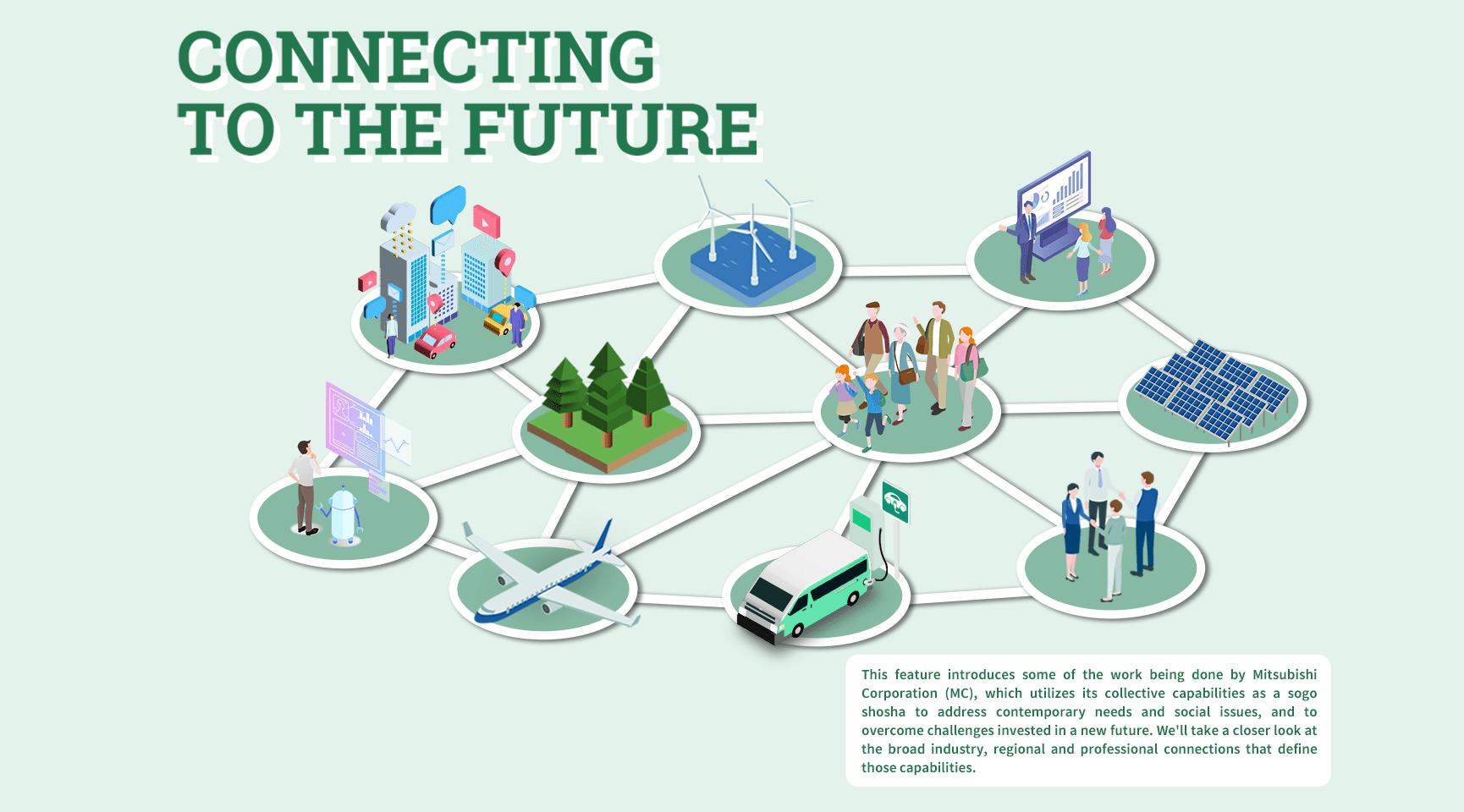
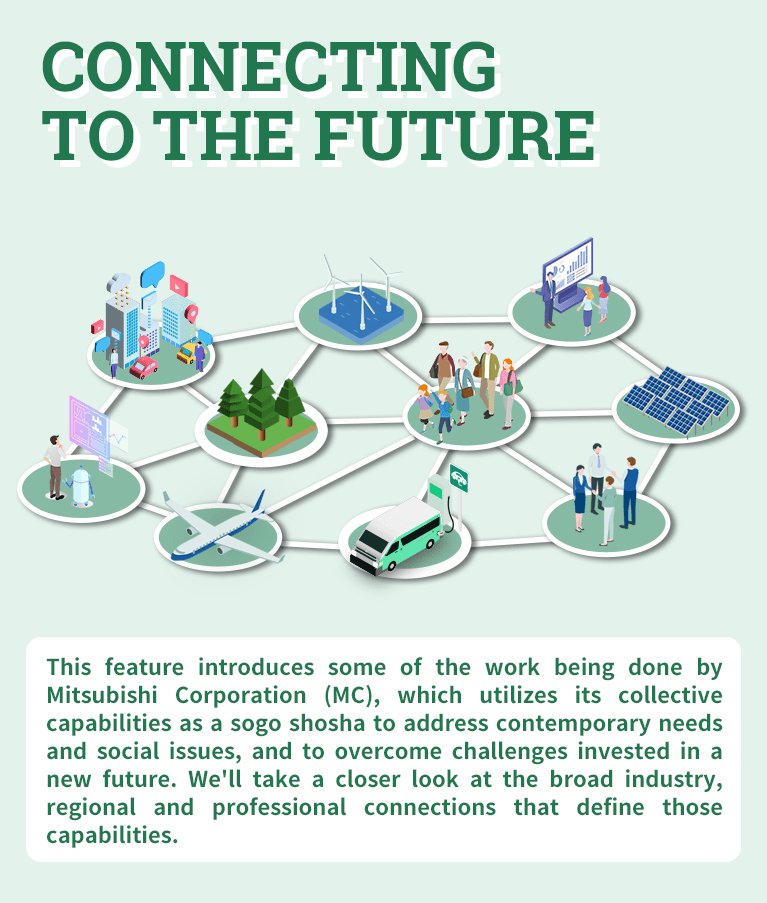
The Present and Future of Next-generation Energy Vol. 3
Innovation Born of Integration
Sharing the Conviction to Create the Future of Energy
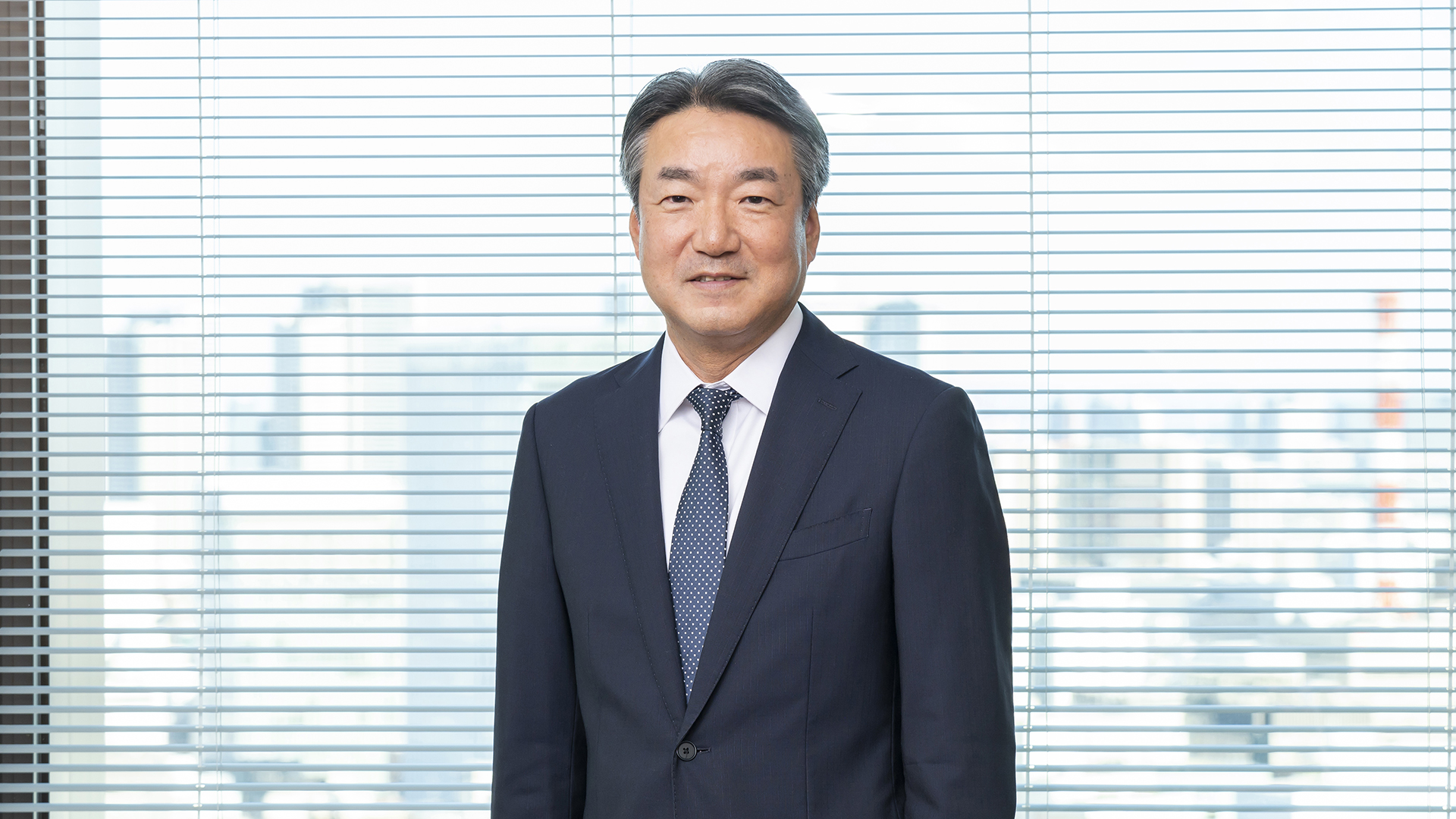
This past spring, MC launched its Next-Generation Energy Business Group to help it balance energy stability and decarbonization. In part 3 of our series highlighting MC's vision and activities, we speak with Executive Vice President and head of the Next-Generation Energy Business Group, Mr. Masaru Saito. He fills us in on MC's sense of mission as a company invested in long-term energy projects and the aims behind establishing this new group.
(Interviewer = Globe+ Editor in Chief, Kazuhiro Sekine)
Our Responsibilities in Realizing a Carbon-neutral Society
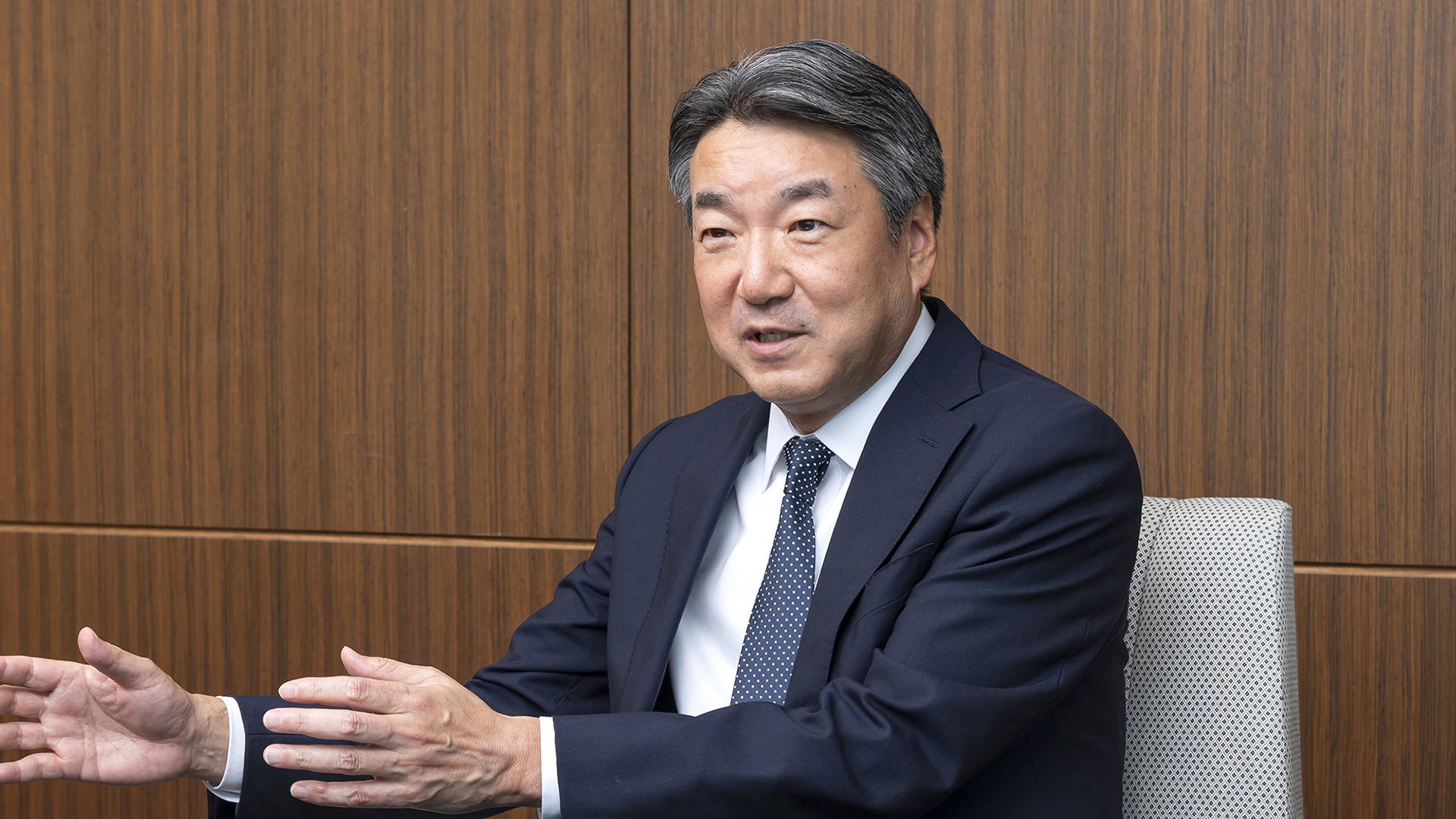
——Insofar as its quest to decarbonize is concerned, Japan is now in a period of transition. How would you describe the current situation, and what responsibilities do those overseeing the country's energy businesses share with respect to adopting next-generation alternatives?
Decarbonization is an irreversible trend, but we cannot convert all of our energy systems in one fell swoop. If we approach this with the mindset of shifting everything over to next-gen alternatives starting tomorrow, then we'll quickly realize how impossible that is, both in terms of securing stable supplies of those alternatives and the massive cost to our citizens. A much more realistic approach to decarbonization is to gradually ease the environmental burden of existing energy supply chains while maintaining the stability of our existing energy supply. We also have to ensure that our steps are economically viable, so our journey to carbon-zero has to be taken in stages, which will include proposing and executing new energy mixes that lean more and more heavily towards next-gen options. Unfortunately, this journey is not going to be an easy one. In addition to the tech-related challenges of balancing stability and decarbonization, there remain so many uncertainties. For example, during this transitional period, what will the timeframes be for adopting these new energies? How will their systems be designed? What's it going to cost us? It's difficult to even hazard a guess at those answers right now. Furthermore, fragmentation of the international community, escalating geopolitical risks and other forces can have complex repercussions on global energy markets, as we're witnessing right now with Russia's invasion of Ukraine, which has caused energy prices to skyrocket. The truth is, for Japan to have any hope of getting to carbon-zero by 2050, its energy industry must take action to deal with these extremely complicated and uncertain circumstances. Over its history, Japan's primary energy sources have diversified from coal to oil to LNG. At each of those stages, MC was there to meet needs driven by the changing times, and we can be proud of the fact that we played a fairly significant part in our country's energy transitions and supply stability. Now that Japan has reached yet another of those turning points and is preparing for its shift to next-gen energy, MC will once again be here to fulfill its mission. We will do that by leveraging MC strengths, which include our diverse industry connections, the trust-based relationships with our partners, and our global know-how. In my opinion, this mission of ours encompasses two broad responsibilities. One is to securely balance stability and decarbonization through a holistic view of energy supply chains, and the other is to contribute to Japan's Regional Revitalization plan by improoving in industry competitiveness and creating entirely new carbon neutral industries.
Innovation Born of Connections Between People and Businesses What Can We Expect?

—— Remind us why MC set up its Next-Generation Energy Business Group in April 2023.
Before MC established this group, its next-gen energy businesses were scattered between its other business groups. In other words, its biofuel and hydrogen operations were being handled by one group, its carbon credit operations by another group, its ammonia operations by still another, and so on. MC had also established its EX (Energy Transformation) Task Force as a companywide, cross-organizational body dedicated to setting down strategies in next-gen energy that factored in the entire structure of Japanese industry. Under our latest management plan, Midterm Corporate Strategy 2024, our goal is the continuously creating significant shared value by elevating the MC Group's collective capabilities in order to address societal challenges. EX is one of our main focuses here, so to take projects invested in those transformations to full-scale implentation, we knew that we'd need to bring together all of the related talent and know-how that was dispersed between our different business groups and the EX Task Force. The result was our Next-Generation Energy Business Group.
—— What impacts do you expect this consolidation will have?
Combining talent and businesses leads to innovation. What I expect is that by organically connecting diversely experienced and knowledgeable industry specialists, MC will give rise to new and completely unprecedented ideas in the field of next-gen energy. One example of our efforts to jointly develop businesses is our hydrogen and e-methane operations. The aim is to use renewable energy to power hydroelectrolysis (i.e. the splitting of water into hydrogen and oxygen), which gives us green hydrogen. We can react the hydrogen with CO2 to make the e-methane, which is then imported to Japan, where it can be used as town gas. To forge a value chain like this, you need to mobilize a single team of specialists whose individual expertise covers everything from renewables, hydrogen, natural gas, and so on. I think that our ability to do that now is unmatched by any other company.
—— Why did MC move its Refinery Business Department, which handles petroleum products, to its Next-Generation Energy Business Group?
That was done to fold an existing business, namely oil, into the new business domain of next-gen energy. Integrating old and new creates new business-development possibilities. For example, we've begun talks on using existing liquefied-petroleum-gas (LPG) infrastructure to convert the Namikata Terminal in Ehime Prefecture into a supply hub for ammonia, which has been in the spotlight due to its myriad uses. Utilizing existing infrastructure is important from a cost perspective, and we also expect that the creation of carbon-neutral industries that leverage regional characteristics will contribute to regional revitalization. Furthermore, this move holds significance in deriving practical solutions for low and decarbonization. The needs, interest levels, and progress in low and decarbonization vary greatly from one industry or company to another. Properly grasping the raw feedback from diverse industry stakeholders will also be crucial for future business development.
The Excitement of Creating a New Future in Energy
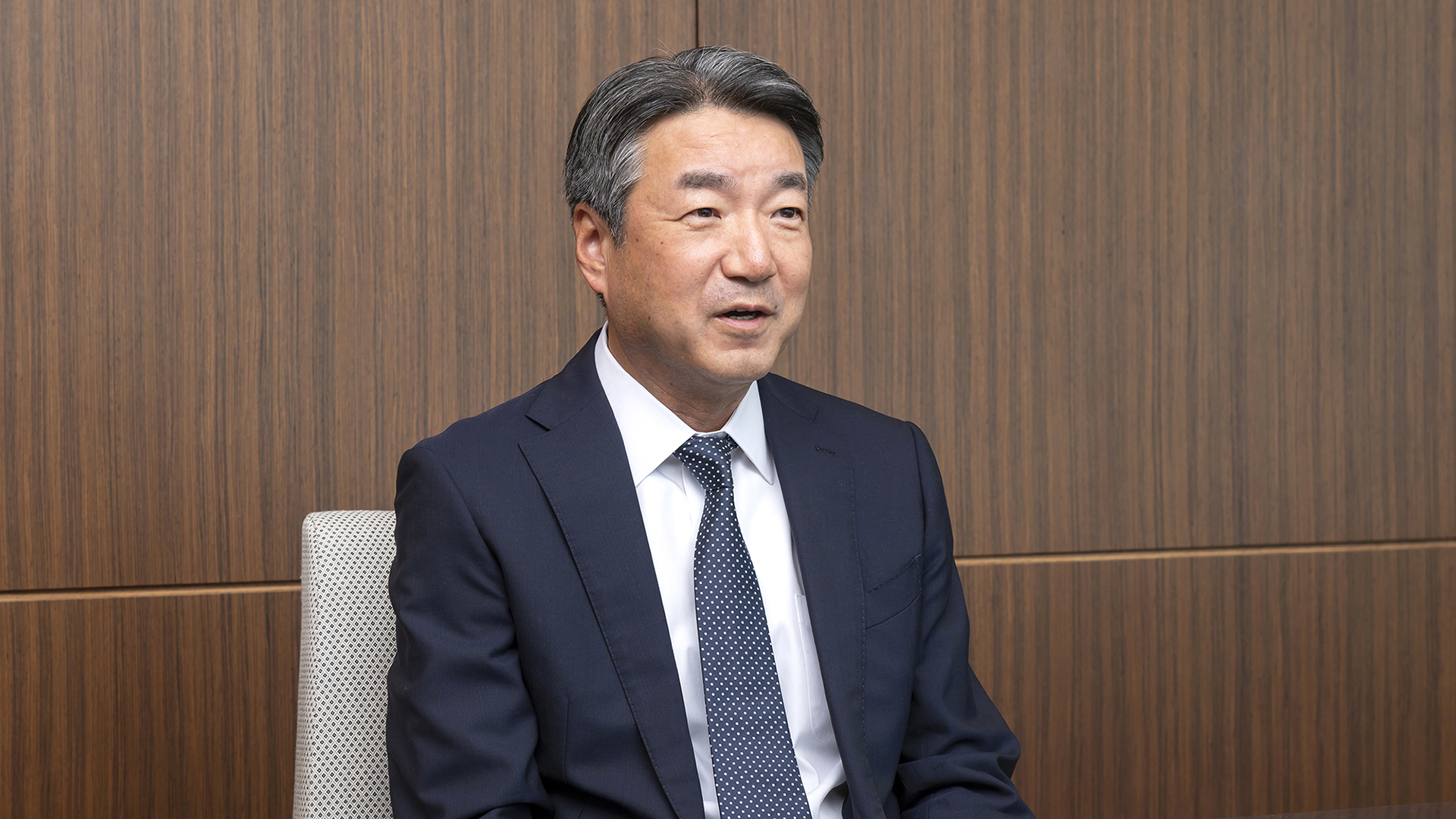
—— In part 2 of this series, our roundtable discussed some specific initiatives being taken by MC's Next-Generation Energy Business Group, including sustainable aviation fuels (SAFs) and Chiyoda Corporation's trademarked SPERA* hydrogen system. It is impressive how steadily decarbonization is progressing in all these different fields.
There is no definitive scenario for achieving carbon neutrality by 2050, but progress is being made with new technologies. For example, in the coming years we could see the emergence of new carbon-dioxide-reduction (CDR) systems and big changes with respect to how hydrogen is made. Another thing to remember is that there are still inconsistencies in the ways that countries and international organizations are designing their systems, so we won't necessarily see a clear path forward. Having said that, this uncertainty is no excuse for us to sit back and wait for someone somewhere else to find solutions. No matter how gradually, we are determined to make progress in developing our own solutions and helping society to start using next-gen energy. That is our responsibility. As you've alluded to, MC's approach is to compile small successes in multiple industries. We start small in areas where factors like technological maturity, costs and so on can be precisely gauged, then we gather information on specific challenges, build up our know-how, and so on. By repeating this process, we gradually broaden our customer and industry bases. All of this plays a role in helping MC to make significant energy transitions. * The SPERA system reacts hydrogen with toluene to form methylcyclohexane (MCH), which is used to transport and store the hydrogen.
—— To wrap up our interview, please tell me your aspirations as head of the Next-Generation Energy Business Group.
As I mentioned, the road to societal applications of next-gen energy is going to be a challenging one to navigate. I think that as we take this journey, there will only be one thing that drives our businesses forward, namely the shared conviction of everyone involved. Although the journey will be difficult, it will also be an exciting and inspiring time for us to imagine what the future has in store for energy, Japan, and the world at large. I firmly believe that our abilities to imagine, think and act will be what makes the carbon-zero dream a reality. So we'll continue to work together to take full advantage of the MC Group's broad industry connections, intelligence and talent, as we seek to develop businesses that are invested in societal solutions.
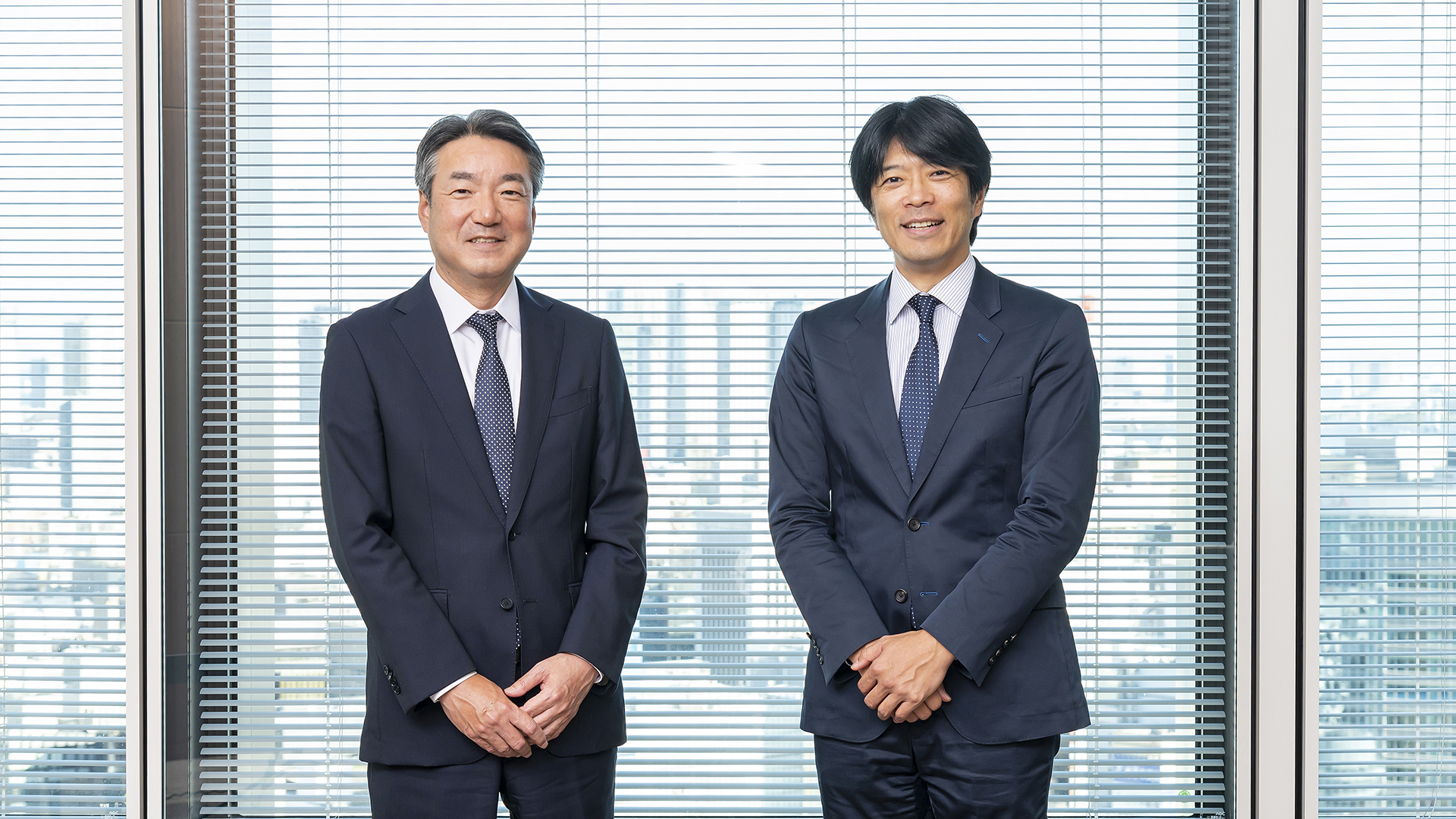
-
The Present and Future of Next-generation Energy vol.1
MC's Next-Generation Energy Business Group A New Organization Dedicated to Decarbonization -
The Present and Future of Next-generation Energy vol.2
Leveraging Cross-industry Connections and Know-how to Advance Societal Adaptations of Next-generation Energy -
The Present and Future of Next-generation Energy vol.3
Innovation Born of Integration Sharing the Conviction to Create the Future of Energy
